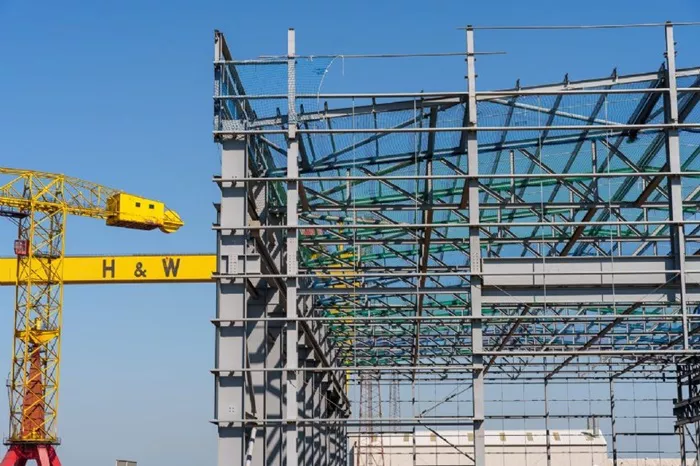Navantia UK, a subsidiary of Spain’s Grupo Navantia, has begun an ambitious modernisation project at the Harland & Wolff shipyard in Belfast. This historic site, known for building the Titanic, is set to become one of the UK’s most advanced shipbuilding facilities. The modernisation comes as part of the Fleet Solid Support (FSS) contract, in which Navantia UK is constructing three vessels for the Ministry of Defence.
After acquiring Harland & Wolff in January 2025, Navantia UK announced an increase in the investment for the project, raising the originally planned £78 million under the FSS programme. This investment aims to enhance the shipyard’s ability to build the FSS vessels and prepare for future projects. It is expected to directly benefit 600 jobs in Belfast, with potential for long-term growth through the addition of high-skilled roles in areas like computer-aided design, advanced manufacturing, and digital systems integration.
Juan de la Cueva, CEO of Navantia UK, commented, “This investment is a key moment for UK shipbuilding. By combining Harland & Wolff’s historic legacy with Navantia’s global expertise and cutting-edge technology, we are creating a world-class facility to build the next generation of naval vessels. This modernisation reflects our commitment to strengthening the UK’s shipbuilding capabilities.”
Boosting Productivity and Sustainability
The modernisation will focus on improving productivity, creating skilled jobs, and implementing sustainable manufacturing practices. The first phase will enhance the shipyard’s capacity to build vessel hulls, with upgrades to delivery systems, stockyard management, and cutting technologies. New equipment, such as advanced lifting cranes, robotic plasma cutting systems, and automated quality control processes, will be installed. The shipyard’s famous Samson and Goliath gantry cranes will continue to be key to operations. Additionally, a fully automated panel line for flat panel units will be introduced.
The investment also extends to Navantia UK’s other facilities, including the Appledore shipyard in Devon, where the bow sections for the FSS vessels are being built. An advanced plasma cutter will be purchased to replace the facility’s outdated machinery, which has been in use for over 20 years.
Navantia UK’s investment plan further includes its Scottish sites in Arnish and Methil, which focus on the energy sector. At Arnish, work has already started on developing skills infrastructure to support the region’s workforce.
This investment signifies a major step forward for the UK’s shipbuilding industry, combining cutting-edge technology with a rich historical legacy to position Harland & Wolff as a leading player in naval construction.

